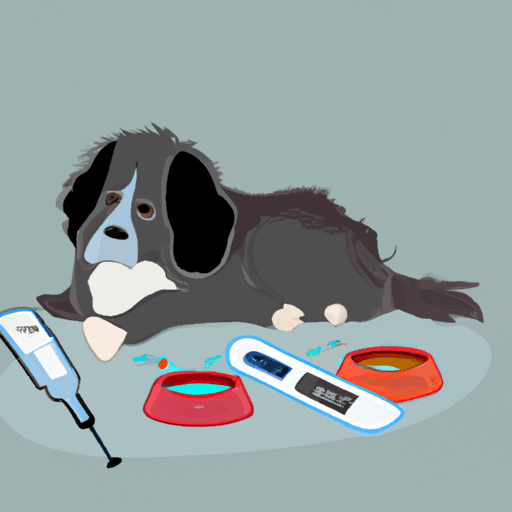Introduction
When it comes to your dog’s health, you always want to be on the lookout for any signs of distress or illness. One such disease that often affects our beloved canine companions is Parvovirus, commonly known as Parvo. Being able to identify the symptoms of Parvo can help you take proper action and prevent the worsening of your pet’s health.
Understanding Parvo
Parvo is a viral disease that can be life-threatening if not treated promptly. It is highly contagious and can spread rapidly among dogs, especially puppies. Parvovirus affects a dog’s gastrointestinal tract, causing severe vomiting, loss of appetite, and bloody diarrhea.
The most common symptoms include:
- Severe diarrhea (often bloody)
- Fever
- Lethargy
- Vomiting
- Dehydration
- Rapid weight loss
Risks and Prevention
Parvo is not a respecter of breed or age, but puppies between the ages of six weeks to six months are at the highest risk. The virus is resistant to many common disinfectants and can survive in the environment for long periods.
To protect your dog from Parvo:
- Vaccination is the most effective way to prevent Parvo. Make sure your dog is up-to-date on their vaccinations.
- Avoid areas with lots of dogs if your puppy is not yet fully vaccinated.
- Keep your dog away from feces or vomit of other dogs.
- Regularly disinfect your dog’s living area.
Treatment of Parvo
The treatment of Parvo primarily involves supportive care. This includes hydration therapy, controlling vomiting and diarrhea, and preventing secondary infections. The quicker the treatment begins, the higher the chances of recovery.
FAQ
Q: Can humans get Parvo from dogs?
A: No, humans cannot get Parvo from dogs. The strains of the virus that affect dogs do not infect humans.
Q: How long does Parvo last in a dog?
A: The illness itself usually lasts around 5-10 days, but the virus can remain in the environment for months.
Q: Is there a cure for Parvo?
A: There is no direct cure for Parvo. However, with aggressive supportive care and treatment, many dogs can recover.
Q: Can my dog get Parvo even if it’s vaccinated?
A: While rare, it is possible. No vaccine is 100% effective, but vaccinated dogs who do get the disease usually have milder symptoms.
Awareness and understanding are the first steps towards prevention. Always keep a keen eye on your dog’s health and behaviour, and consult your vet if you notice anything unusual. Your vigilance can make all the difference in ensuring your pet’s wellness.



